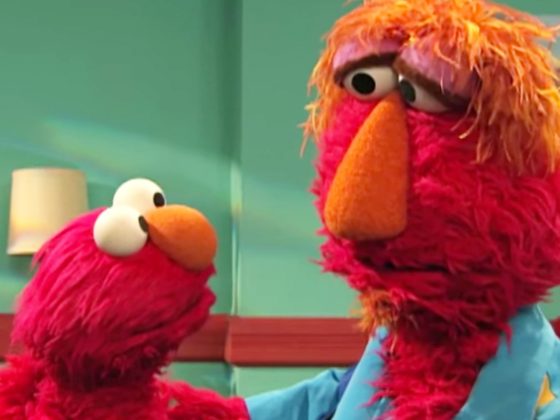
What Happened?
Adults may feel unsure about how to start a difficult conversation or what exactly to say, but it’s important to talk openly and honestly about grief.
There’s nothing easy about explaining death to a child, especially the death of a parent or close family member. Adults may feel unsure about how to start the conversation or what exactly to say, but it’s important to talk openly and honestly about the situation.
- Watch this video together in a quiet place in which children feel comfortable and safe, then begin a conversation, being as concrete as you can. For example, “Do you remember what Elmo’s daddy said about Elmo’s Uncle Jack?” (“Uncle Jack died. When a person dies, his or her body stops working. Their heart stops beating and their body stops moving, eating, and breathing.”) You may have to repeat these facts.
- Remind kids that whenever Elmo puts on Uncle Jack’s silly hat and swings a baseball bat, he thinks of him. Together, look for an object or find (or talk about) a special place that reminds kids of the person who died. It might be a book they’d read together, a park they used to visit, or a favorite food they ate together. Tell kids that each time they see this thing or go to this special place, they can remember their special person in their hearts.
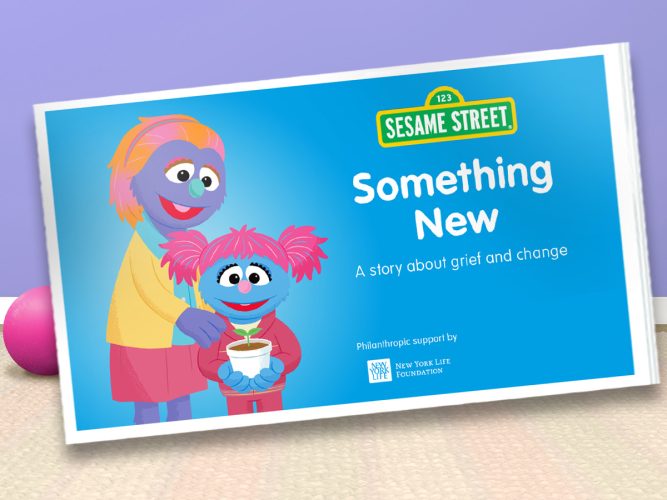
Something New
In this story, Elmo’s cousin Jesse helps remind children that big changes can mean new opportunities to learn and grow.
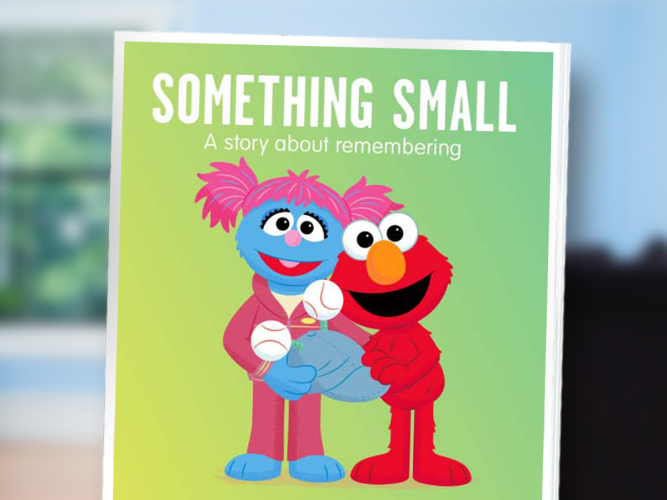
Something Small
Show children that even a small memory can help us remember loved ones.
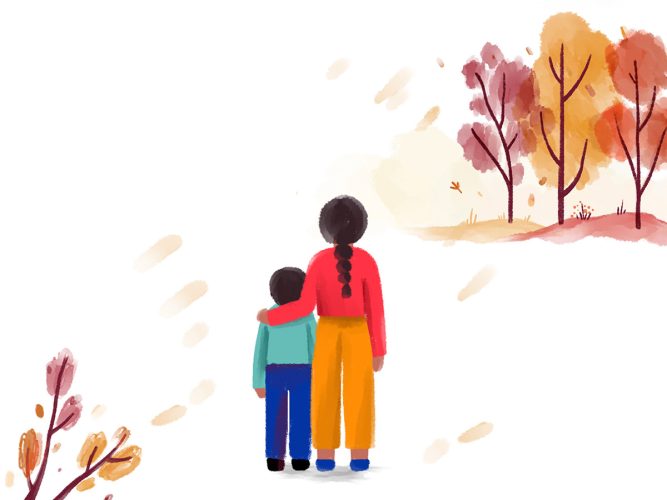
Growing as We Grieve
Parents and caregivers, reflect on your own experience of grief and hear what has helped other families cope, thrive, and find joy.
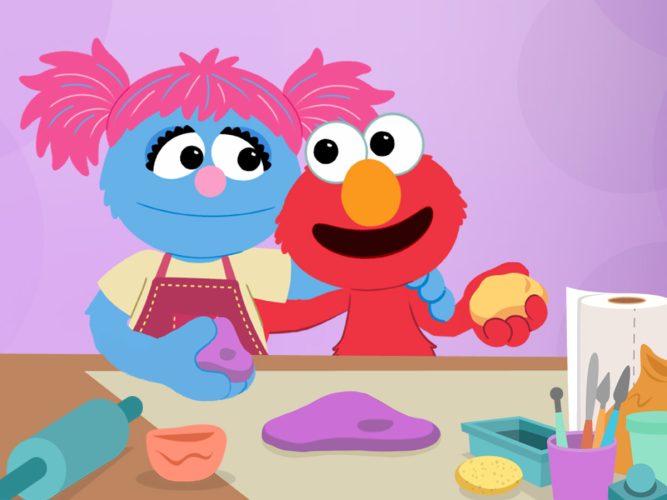
Express Yourself with Elmo and Jesse
Help a child check in with and express their feelings with these interactive creative activities.
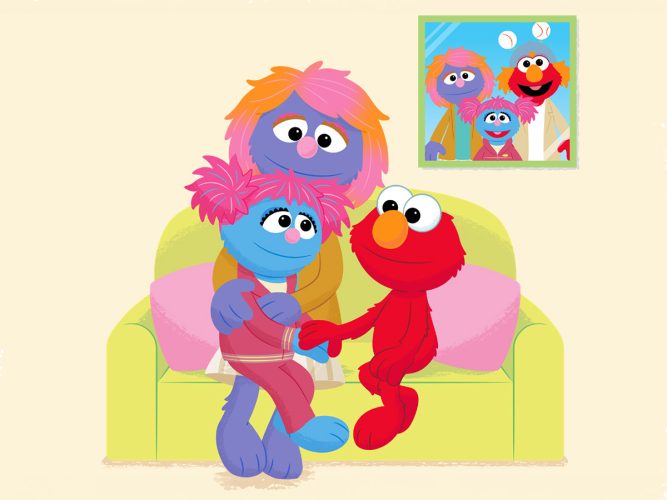
Growing as They Grieve
A special guide for providers supporting children who are grieving.
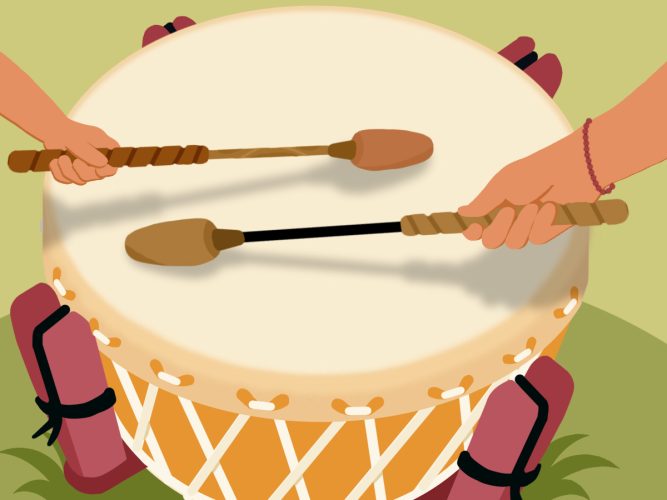
Supporting Grieving Native American Children and Families
Learn ways to support Native American children and families who are grieving with compassion and cultural humility.

Grieving and Growing: Helping Families Navigate Bereavement Together
